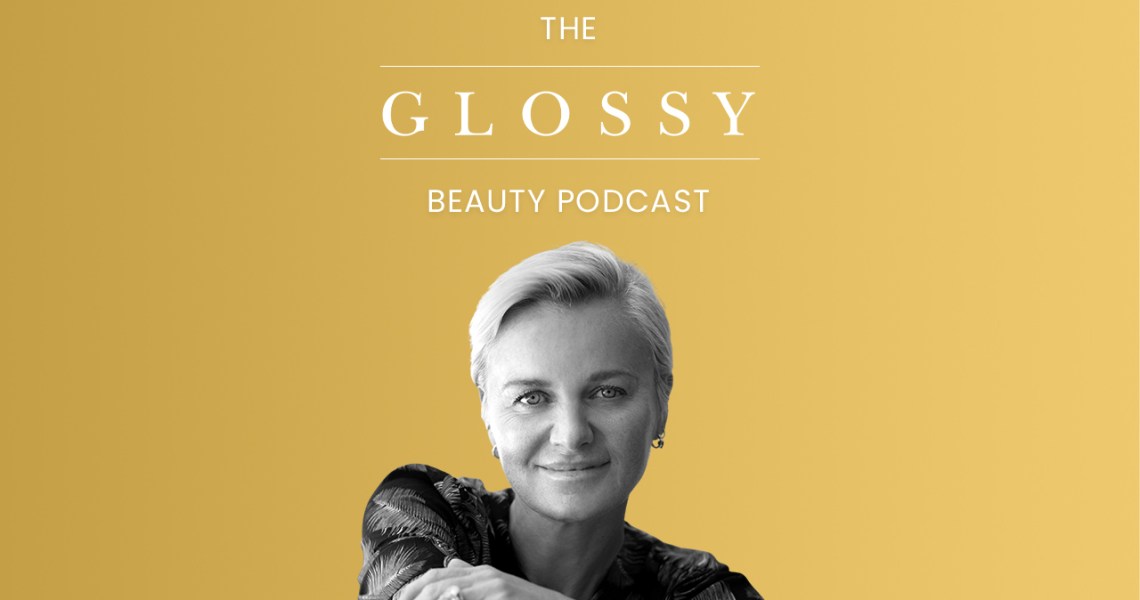Subscribe: Apple Podcasts | Stitcher | Google Play | Spotify
As the skin-care category boomed in the last decade, there were certain standout brands that captivated consumers and industry executives alike. Alongside Drunk Elephant, Tatcha, Augustinus Bader and others, there was Dr. Barbara Sturm.
A celebrity in her own right, founder Dr. Barbara Sturm’s clients include Kate Moss, Cher, Angela Bassett and Rosie Huntington-Whiteley — and she’s been credited with creating the A-lister favorite vampire facial. Sturm’s aesthetics business gave her the concept for her namesake brand, which is now a best seller at Sephora and Net-a-Porter, and sells on its DTC site. But as a trained German aesthetics doctor, she never planned on becoming a beauty brand founder and CEO.
“I started creating products, and that’s how I got into that industry, but [it was] still only designed for helping my patients,” Sturm said on the Glossy Beauty Podcast. “Because of distribution issues — I actually only wanted to be on Net-a-Porter to be able to distribute to my patients [around the] world — they launched me. From that point, every retailer called me up and said, ‘Dr. Sturm, we want your products.'”
Despite the pandemic, the brand has grown from a cult beauty favorite into a mainstream business. The company has seen DTC sales grow 400% since March, and it relaunched its website last September.
“It’s kind of tricky to launch a new website during this period, but we did super, super well with it. It could have been quite a catastrophic experience,” said Dr. Strum. “We are so happy to have it. We put a lot of love and effort into it to really serve our customers as well as we can. It’s not just like, ‘Oh, buy my products.’ It’s more like you get education here; you get so much more insight.”
Here are a few highlights from the conversation, which have been lightly edited for clarity.
Ad position: web_incontent_pos1
The importance of digital
“I was trying for over three years to redo my website.We started one, and then we changed it. It took us forever to get this new site up. It was crazy to get that done right during the pandemic, when it really matters that your website is, like, the top with SEO and all this kind of stuff. It’s kind of tricky to launch a new website during this period, but we did super, super well with it. It could have been quite a catastrophic experience. We are so happy to have it. We put a lot of love and effort into it to really serve our customers as well as we can. It’s not just like, ‘Oh, buy my products.’ It’s more like you get education here; you get so much more insight.”
The duality of being a founder and CEO
“The typical founder is … so passionate about [their business.] You don’t want to have someone telling you, ‘Oh, you can’t do this,’ or ‘You have to ask me for permission,’ or your team is busy every month with writing reports to investors. I think that is really taking away from the original idea. I would like to stay on top of everything myself, and to really stay close to the DNA of what [the brand] was originally and never lose that. I would never compromise on formulation. I would never compromise the access people get to the brand. And so I think it’s the right way for now.”
On the future product innovation
“We’re working on other products in the hair space… I want to use shampoo and conditioner made by me. I know the ingredients, I know what it does, and know when it works. It’s nothing which could harm my skin, my scalp. [With] makeup, we did the spa treatment and all different colors, which is amazing, but I’m not a makeup freak. I’m probably not into creating a whole makeup line… Everybody’s trying to find the next trends and to see what people are doing, because mostly brands are very industrial, they’re run by hedge funds, they’re run by big giants. So that is more so marketing, I think the skin-care industry should leave this marketing component… The customer is very differentiated and understands more and more and more, so they can’t be tricked anymore. [Brands] needs to be really valuable. I’m pretty much the trendsetter. If you want to know what’s going on, just watch what I’m doing.”




